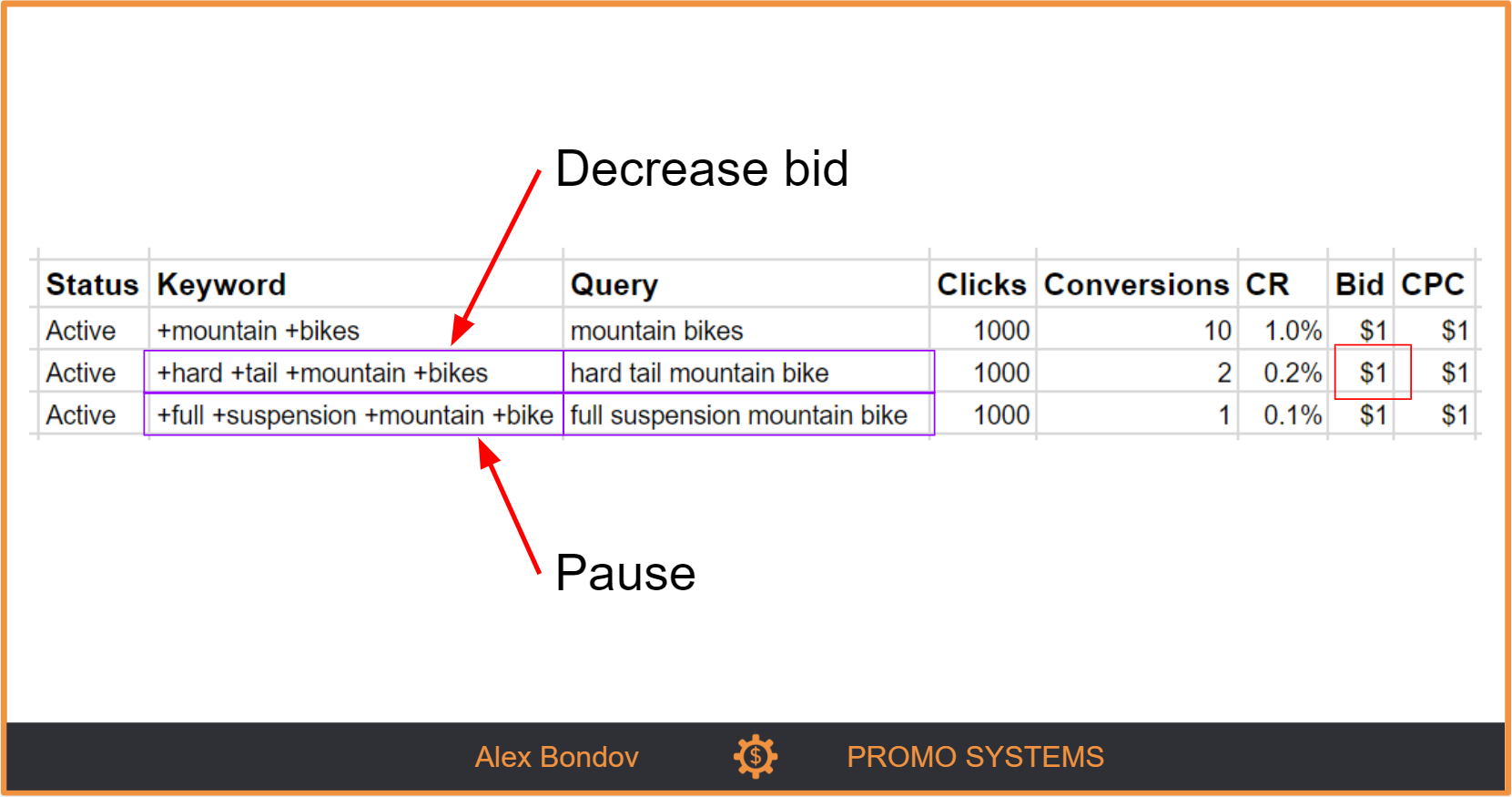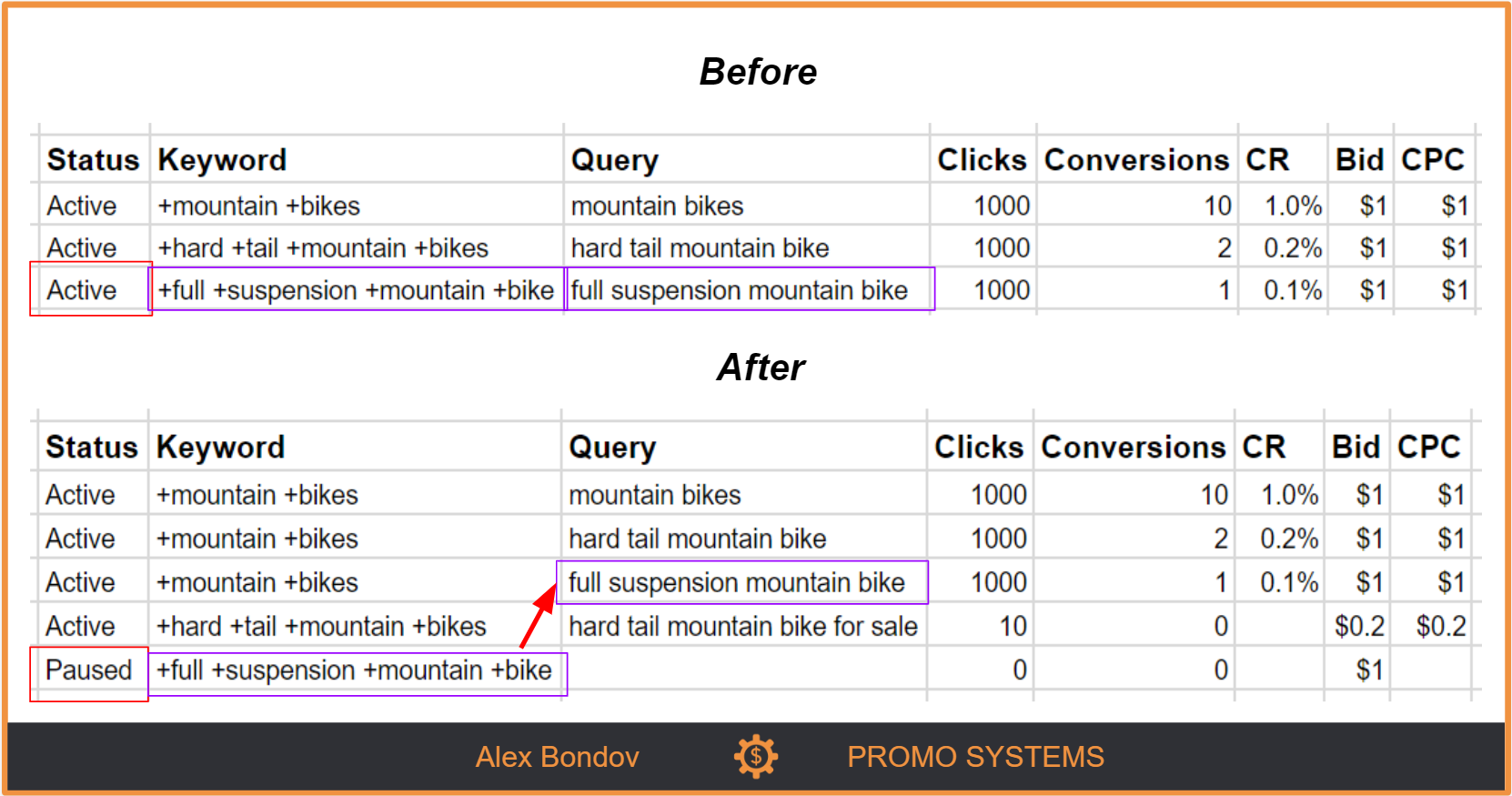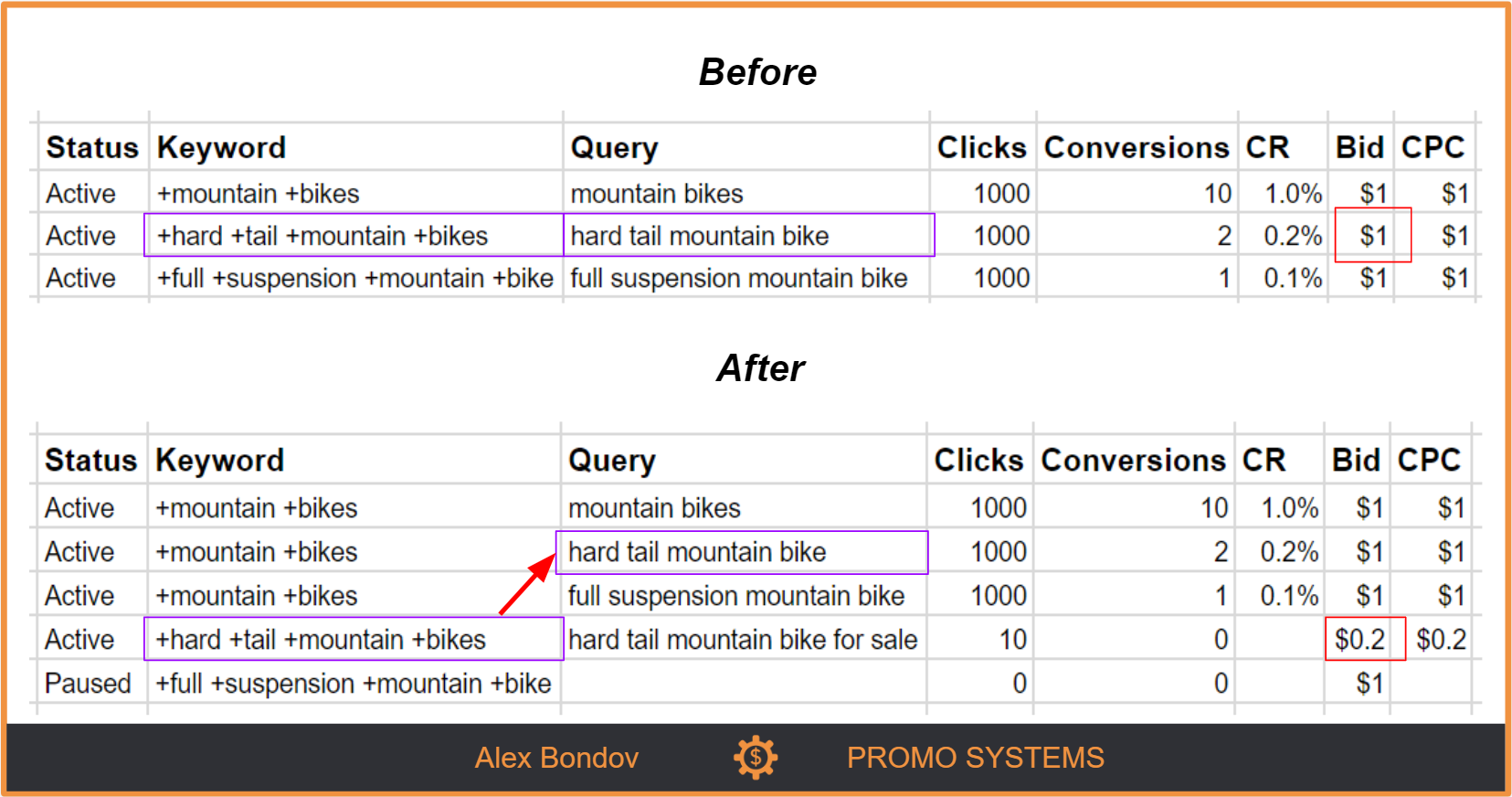Update: keywords on the images are in broad modified match type which was ceased to exist as of 2021. Though, the way phrase match type works after that is the same as it was for broad modified match type. So, just don’t look at those plus signs 
When a user performs a search, multiple keywords from your account match the search query. But only one keyword will participate in this auction.
Google has several rules that define, which one. And, quite often, it is not the keyword that matches the search query exactly. This is why:
- Lowering the bid on a poorly performing keyword may shift its clicks to another keyword that still has a higher bid.
- And when you pause a keyword, its clicks may shift to a similar relevant keyword that is still active.
It’s like in the Hammerhead arcade game. You think you’ve solved the issue by pausing a keyword or reducing its bid. But search queries appear in new locations. They trigger a new keyword, the one that has a higher ad rank now.
Let’s say, you had an ideal case. Google algorithms triggered keywords that match search queries exactly.

Based on accumulated stats you make the following decisions:
- decrease a bid for the +hard +tail +mountain +bikes keyword, and
- pause the +full +suspension +mountain +bike
What happens next:
Queries migrate to active keywords

The paused keyword doesn’t receive clicks now. But the queries it was eligible for migrated to +mountain +bikes keyword. It is relevant to the query and is still active.
Queries migrate to keywords with a higher Ad Rank

The keyword with a lowered bid still serves for some relevant queries but generates little traffic. Its queries migrated to +mountain +bikes keyword because it has a higher ad rank now.
Migrated queries may also have a lower Conversion Rate now as the Ad and Landing Page are not optimal for them.
A similar situation occurs when you raise a bid.
